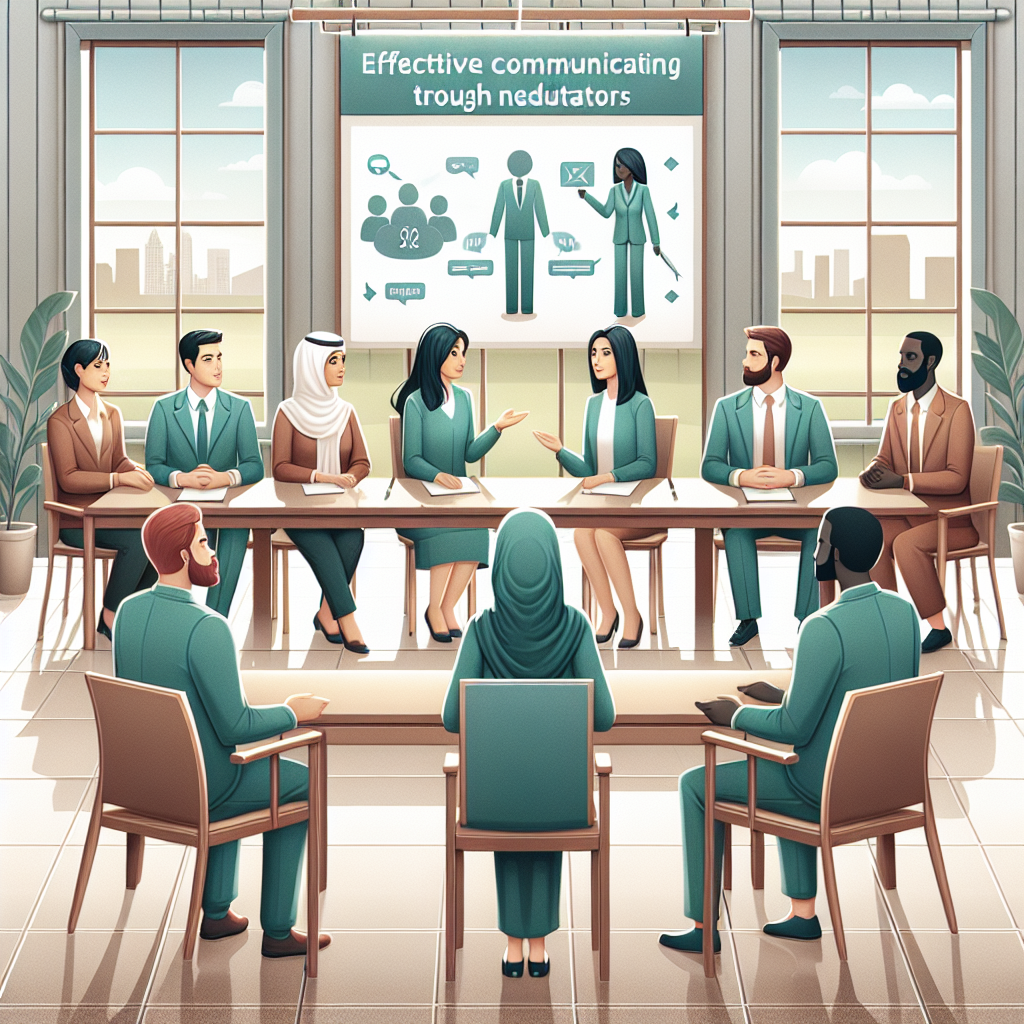Effective Communication Training for Mediators
Master Mediation Communication: Effective Training Tips
Importance of Effective Communication for Mediators
Effective communication is essential for mediators to successfully resolve conflicts between parties. As mediators act as neutral third parties, their communication skills play a vital role in facilitating productive discussions and reaching a mutually beneficial agreement.
Understanding the Role of Mediators in Conflict Resolution
Mediators play a critical role in conflict resolution by providing a safe and neutral space for parties to communicate and negotiate. They act as facilitators, guiding the conversation and helping parties understand each other’s perspectives. Mediators also help parties identify common ground and find creative solutions that meet everyone’s needs.
Defining Communication Skills for Mediators
Communication skills for mediators go beyond basic communication techniques. They involve active listening, empathy, and the ability to effectively convey thoughts and ideas. Mediators must be able to establish trust and rapport with parties, maintain a calm and respectful tone, and effectively manage emotions. They should also be skilled in asking open-ended questions and summarizing key points to ensure clear understanding.
Key Elements of Communication Skills Training for Mediators
Effective communication training for mediators should cover the following key elements:
- Active Listening: This involves paying close attention to what parties are saying and providing verbal and non-verbal cues to show understanding and encourage further dialogue.
- Empathy: Mediators should be trained to understand and empathize with both parties’ perspectives, even if they do not agree with them.
- Non-verbal Communication: Body language, facial expressions, and tone of voice can greatly impact communication. Mediators should be trained to effectively use non-verbal cues to promote open and honest communication.
- Managing Emotions: Conflict often involves heightened emotions, and mediators must be able to manage their own emotions and those of the parties to keep discussions productive.
- Conflict Resolution Techniques: Mediators should be trained in various conflict resolution techniques, such as reframing, brainstorming, and finding common ground, to help parties move towards a resolution.
Techniques for Improving Communication in Mediation
Some techniques that mediators can use to improve communication in mediation include:
- Active Listening: As mentioned earlier, active listening is a crucial element in effective communication. Mediators should listen actively to understand parties’ underlying interests and needs.
- Summarizing: Summarizing key points can help parties understand each other’s perspectives and ensure that everyone is on the same page.
- Reframing: This technique involves restating what one party has said in a more positive or neutral manner. This can help parties see things from a different perspective and reduce defensiveness.
- Using “I” Statements: Encouraging parties to use “I” statements instead of “you” statements can help reduce blame and promote more effective communication.
- Asking Open-Ended Questions: Open-ended questions invite parties to share more information and can help keep the conversation moving forward.
Benefits of Communication Skills Training for Mediators
Effective communication skills training can provide several benefits for mediators, including:
- Improved Conflict Resolution: With better communication skills, mediators can facilitate more productive and effective discussions between parties, leading to more successful conflict resolution.
- Enhanced Neutrality: By actively listening and using non-verbal cues, mediators can demonstrate their neutrality and build trust with parties.
- Increased Understanding of Parties’ Needs: Effective communication training can help mediators better understand parties’ underlying interests and needs, leading to more creative and mutually beneficial solutions.
- Reduced Tension and Emotions: Skilled mediators can effectively manage emotions and reduce tension in mediation, creating a more conducive environment for resolution.
- Improved Mediation Success Rates: When mediators have strong communication skills, they are more likely to reach successful resolutions, leading to higher success rates in their mediation practice.
The Impact of Effective Communication on Mediation Success
The success of mediation is heavily dependent on effective communication between all parties involved. When mediators have strong communication skills, they can help parties communicate more openly and effectively, leading to better understanding and more successful resolutions. Effective communication also helps parties build trust and rapport, making it easier to find common ground and reach an agreement.
Incorporating Communication Techniques into Mediation Strategies
Communication skills should be an integral part of mediation strategies. Mediators should actively incorporate various techniques, such as active listening, summarizing, and reframing, into their approach to help parties communicate more effectively and reach a resolution. By using these techniques, mediators can also demonstrate their neutrality and build trust with parties.
Tips for Implementing Communication Skills Training for Mediators
If you are looking to implement communication skills training for mediators, consider the following tips:
- Customize the Training: Communication skills training should be tailored to the specific needs and challenges faced by mediators. Consider customizing the training to address the unique communication challenges in your mediation practice.
- Encourage Practice: Effective communication skills require practice, so be sure to provide opportunities for mediators to practice their skills in simulated mediation sessions.
- Provide Feedback: Regular feedback can help mediators understand areas where they can improve their communication skills and provide guidance on how to do so.
- Include Role-Playing Activities: Role-playing exercises can help mediators practice their skills in a safe and controlled environment.
- Reinforce Communication Strategies: Encourage mediators to use the communication techniques they have learned in their actual mediation sessions and provide constructive feedback on their effectiveness.
Conclusion: The Power of Communication in Mediation
In conclusion, effective communication is crucial for mediators to successfully resolve conflicts and reach mutually beneficial agreements. By incorporating communication skills training and techniques into their approach, mediators can improve their effectiveness and success rates. With strong communication skills, mediators can create a safe and neutral space for parties to communicate and negotiate, leading to more successful and lasting resolutions.




